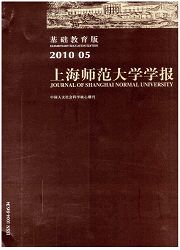

 中文摘要:
中文摘要:
词汇系统由一个个概念词语类聚互相关联构成,同一概念的词语类聚相当于一个词汇场。知晓运动是指人们运用已有的知识经验理解领会未知事物,涉及人的认知和思维,在词义系统中具有重要地位。《朱子语类》表达知晓概念的词中,语义上的互补性主要表现在各词的来源不同。“晓”侧重于明白的解释和洞彻的了解;“解”侧重于经过剖析的理解;“悟”侧重于自身透彻的领会;“省”侧重于观察和内省;“领”侧重于掌握要领;“识”侧重于人脑的记忆;“知”侧重于人脑的感知;“会”侧重于动态相合的领悟;“通”侧重于畅达无阻;“达”侧重于顺畅;“悉”侧重于详尽;“谙”侧重于“熟悉”;“见”侧重于“看到”;“嘹”侧重于看得清楚明白;“了”侧重于领悟了解;“党”的语义功能与“晓”相似,侧重于理解的程度;“委”侧重于知晓程度的详尽清楚;“转”是运转概念和灵活概念这两个心理空间相互映射整合而有“通晓、知晓”义。
 英文摘要:
英文摘要:
XU Shiyi(Classical Documents Institute,Shanghai Normal University,Shanghai,200234,China)Abstract: The word system is composed of clusters of conceptual words.The cluster of the same conceptual words forms a lexical field of their own.The process of "knowing" means people try to understand the unknown based on the knowledge and experiences that they already own,which involves human cognition and thinking and plays an important role in the semantic system.In Zhu Zi Yu Lei,the "knowing" word cluster includes "晓"(xiao),"解"(jie),"悟"(wu),"省"(xing),"领"(ling),"识"(shi),"知"(zhi),"会"(hui),"通"(tong),"达"(da),"悉"(xi),"谙"(an),"见"(jian),"瞭"(liao),"了"(liao),"党"(dang),"晓"(xiao),"委"(wei),and "转"(zhuan).Each conceptual word in the cluster has its special emphasis,and is semantically complementary to the other."晓" lays emphasis on explanation and complete understanding."解" stresses understanding with analysis."悟" focuses on one’s own thorough comprehension."省" underlines observation and introspection."领" emphasizes mastery of the main points."识" lays emphasis on memorization."知" focuses on perception."会" stresses the dynamic comprehension."通" lays emphasis on unobstructed."达" focuses on smoothness."悉" stresses explicitness."谙" lays emphasis on familiarity."见" focuses on witness."瞭" lays emphasis on clear view."了" lays emphasis on understanding and comprehension."党" lays emphasis on the degree of understanding which has the similar semantic function of "晓"."委" lays emphasis on the explicitness of understanding."转" refers to the integration of the two mental powers of dynamics and flexibility,meaning to understand thoroughly.
 同期刊论文项目
同期刊论文项目
 同项目期刊论文
同项目期刊论文
 期刊信息
期刊信息
